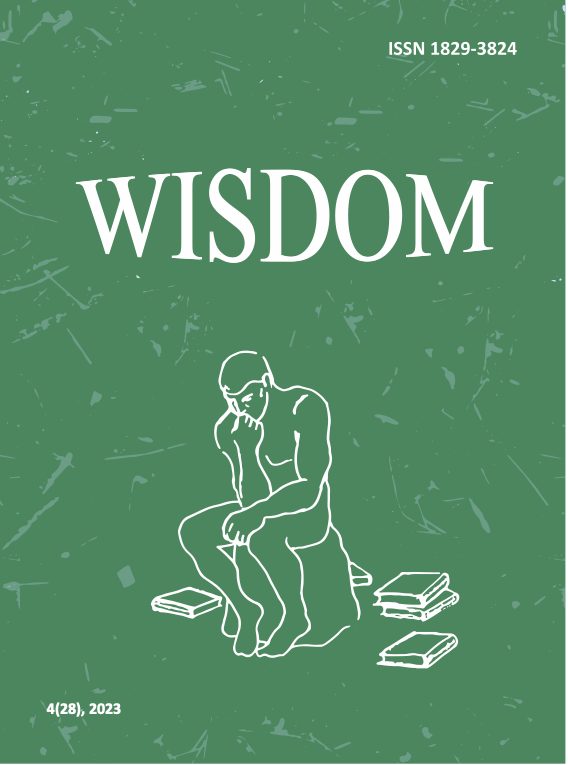Patriotism And Armenian Statehood In The Norms Of Armenian Law
DOI:
https://doi.org/10.24234/wisdom.v14i1.318Keywords:
patriotism, Armenian law sources, formation of Armenian statehood, Vorokait Parats, Shahamir Shahamirian, Artsakh, khamsaAbstract
The purpose of the article is to study and present the sources of Armenian law that contain provisions on patriotism and Armenian statehood.
To achieve this goal, our task is to investigate the legal and patriotic labor standards of Hakob and Shahamir Shahamirian’s Girk Anvanial Vorokait Parats (Snare of Glory). It is no secret that the work "Vorokait Parats" is one of the most important documents of Armenian law, which for the first time in the reality of Armenia presents a holistic and orderly system of norms of various branches of law.
As a result of the research were applied both scientific (analysis, the principle of historicity) and special (comparative legal) methods.
The study of the above mentioned legal and patriotic norms gives us the opportunity to conclude that they play a key role in the development of our national, legal, political thought and are a kind of value radiating patriotism.
Downloads
References
Arghutyan, H. (n.d.). Matenadaran, dzeragir tiv 2949 ev 1778 noyemberi tr.-i namak (Matenadaran, manuscript number 2949 and the letter of November tr. 1778, in Armenian).
Avagyan, R. (2002). Hay iravakan mtqi gandzaran (Treasury of Armenian legal thinking, in Armenian), Shahamirian "Vorokait Parats", Introduction (Vol. Book 2). Yerevan.
Ayvazyan, S. (2013). Nachala zakonodatelnogo prava Armenii (The basis of Armenian legislative law, in Russian). Yerevan.
Cramer, S. (1954). Ur-Nammu Law Code.
Finkelstein, G. (1969). The Laws of Ur-Nammu (Vol. XXII). Journal of Cuneiform Studies.
Flavius, J. (1996). Evreyskoye starosloviye (Antiquities of the Jews, in Russian) (Vol. Book 1). Moscow.
Gurney O.R., C. S. (1965). Two fragments of Sumerian Laws (Vol. N 16). Assyriological Studies.
Lambert, W. (1996). Instructions of Shuruppak: Babylonian Wisdom Literature. Winona Lake, Indiana: Eisenbrauns.
Lock, J. (1962). Izbranniye filosofskiye proizvedeniya (Selected philosophical works, in Russian) (Vol. 2). Moscow.
Nelson, T. (2010). Nelson's Complete Book of Bible Maps and Charts (3 ed.).
Nersesyan, M. (1990). Armyano-russkiye otnosheniya v 18 veke, sbornik dokumentov 1760-1800 (Armenian-Russian relations in 18th century, collection of documents of 1760-1800, in Russian ) (Vol. 4). (N. M.G., Ed.) Yerevan: Institute of History of Armenian SSR.
Yeritsyan, A. (1883). (1841-1902) Hndkastani harust ktaknery ("Indian rich inheritances", in Armenian) (Vol. 94).
Downloads
Published
How to Cite
Issue
Section
License
Creative Commons Attribution-Non-Commercial (CC BY-NC). CC BY-NC allows users to copy and distribute the article, provided this is not done for commercial purposes. The users may adapt – remix, transform, and build upon the material giving appropriate credit, and providing a link to the license. The full details of the license are available at https://creativecommons.org/licenses/by-nc/4.0/.















